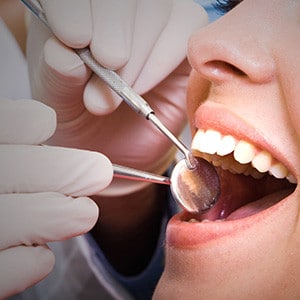
When You Need to find a Dentist for an Emergency Root Canal?
— March 11, 2016You just bit down on a nice piece of grilled chicken, and you felt shooting pain emanate from your teeth, to your jaw, to what seemed like your entire body. Or maybe it was a drink of hot water, with a special brand of pain and sensitivity that lingered and just wouldn’t go away.
Truthfully, there are a multitude of reasons your teeth could be hurting. Sensitivity from cold or heat could be as simple as a receding gum line from over-brushing, or purely genetic sensitivity. Then again, it could also be the sign of a much more troubling problem, like infection.
Your mouth is a dirty place. With that in mind, it’s important to remember that keeping your teeth and gums sealed is incredibly important. So when oral hygiene falls by the wayside, or an accident gives it an entrance into your tooth’s inner sanctum, the opportunity for bacteria to fester, grow, spread, and eat away at the inside of your tooth is very real.
The procedure that would eliminate that bacteria is known as a root canal procedure. No, it’s not just a “root canal”. A “root canal” is actually that inner sanctum we’ve already talked about. Think about it as a tree’s root system. Without it, the tree would die. WIthout your root canal and its many connected parts, your tooth would die as well. In fact, infection in the root canal that goes untreated can even lead to some particularly life threatening blood diseases.
But remember, it’s not just a matter of your teeth hurting. It’s possible – but rare – to require a root canal and experience little or no pain. Other signs you need to find a dentist nearby for root canal treatment include:
- Swelling: discomfort and/or swelling near the gums are a good sign that your tooth has a problem, and if the swelling is taking place near the gumline the presence of bacteria and infection is almost a guarantee.
- A small, pimple-like bump on your gum: this is the sign of an abscess which is caused by severe tooth decay or an acute injury that then allows bacteria to fester.
“What are my options?”
Many responsible patients wonder what their options are when it comes to root canals. For those patients, we’ve put together a small list of questions you can ask your dentist in order to gain a full understanding of your situation, and to make the most informed choice.
- Will my tooth recover?
- Is root canal treatment entirely necessary?
- Do I have any alternatives?
- Should I even bother with a root canal, or should I skip it and go ahead and get an implant? (Basically, “Is my tooth even worth saving?)
- What happens if I don’t receive treatment?
- What happened? Why did the pulp in my tooth get infected?
- Is this a job for you, my dentist, or an oral surgeon?
The answers to these questions will vary from patient to patient, and can very well influence the way you proceed. As always, the best decision is to do your research and trust your dentist. If your dentist isn’t confident he or she can successfully clean the root canal, a specialist will be recommended. But most of all, don’t wait! The longer you put off root canal treatment, the harder it is to reverse the damage. Take care of it now!








Leave a reply